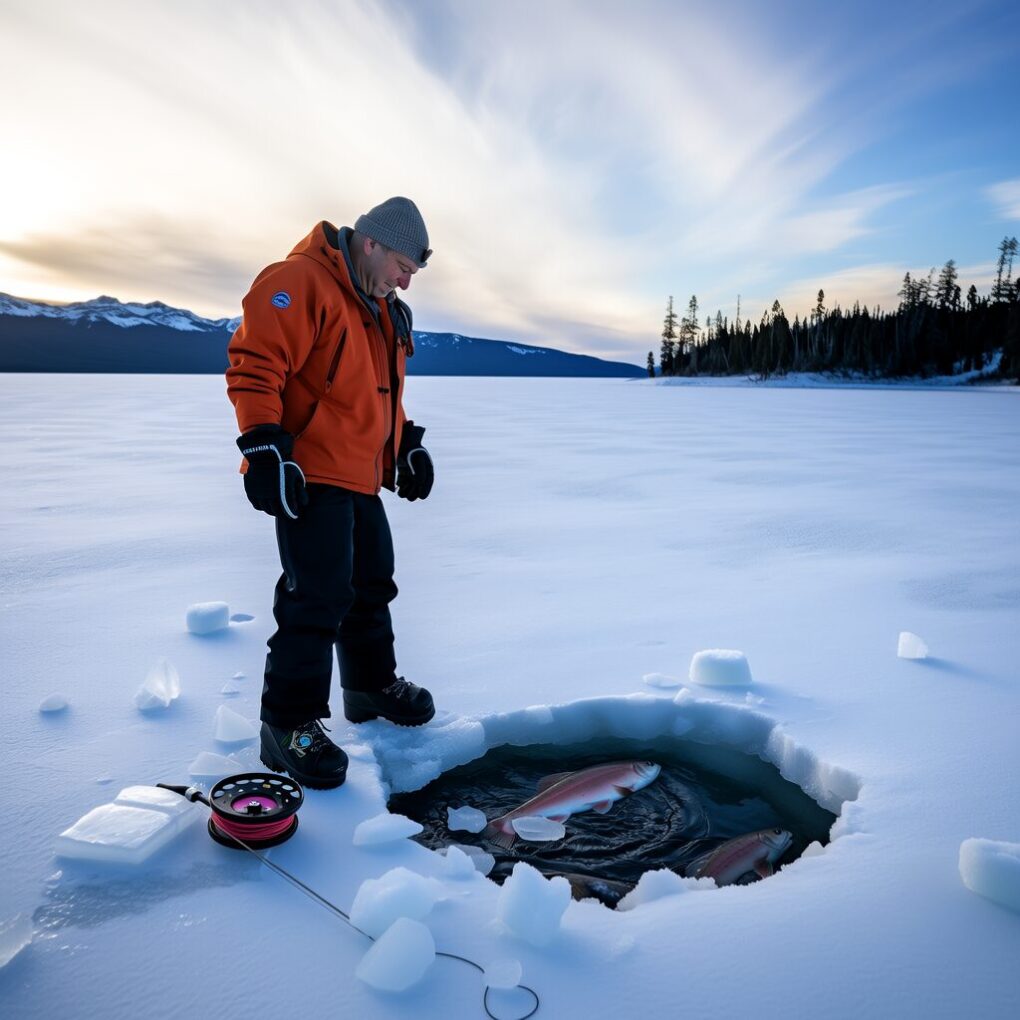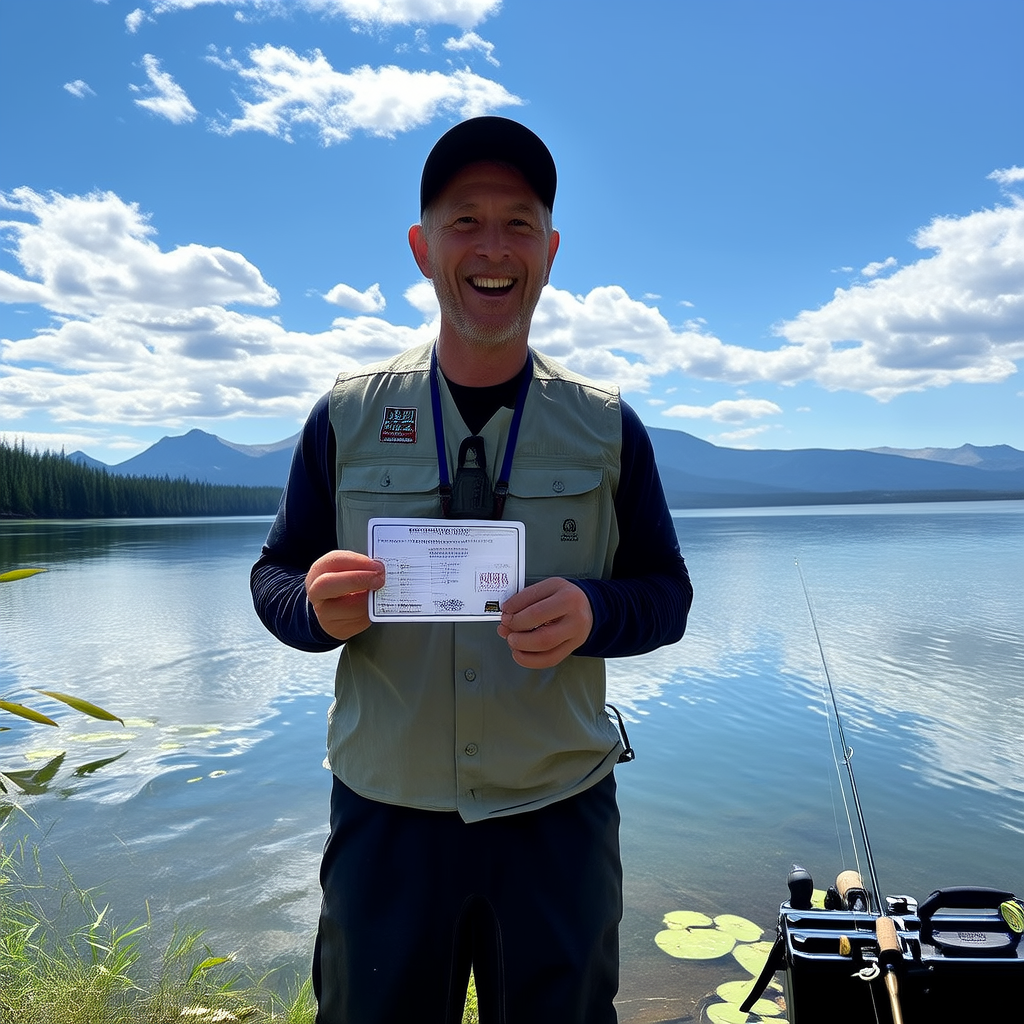It is important to know the rules and regulations surrounding the Indian fishing licence, whether you are a passionate angler or simply want to experience the thrills of fishing in India’s incredible water bodies. The right license will not only allow you to enjoy this recreational activity legally but it will also help conserve the aquatic ecosystem. This comprehensive guide will provide all the information you need about the Indian fishing licence and how to obtain one.
What is an Indian fishing license?
Indian fishing licenses are legal permits granted to individuals and groups who wish engage in fishing in Indian water bodies. The concerned governing authorities issue it to maintain the ecological equilibrium and sustainability of aquatic life. This license ensures that the Indian government’s conservation policies are adhered to and that the fishing practices are regulated.
Why is it important to have an Indian fishing license?
It is important to understand that Indian fishing licenses are not just for leisurely fishing. Here are some of the main reasons why obtaining the right license is important:
1. Legal Requirement
In India, fishing without a valid license is illegal. Anyone caught fishing without the proper authorization could face severe penalties including fines and confiscation of their fishing equipment.
2. Conservation and Environmental Balance
The Indian fishing licence plays a major role in maintaining ecological balance through the regulation of fishing activities. It ensures that fishing activities are done sustainably and reduces the threat to aquatic life. By obtaining a fishing license, anglers help to protect marine and freshwater species.
3. Support for Local Economy
Indirectly, obtaining an Indian fishing licence also supports the local economy. The revenue from fishing licenses is often used to fund conservation initiatives, improve infrastructure, and promote tourism in the area. You contribute to the economic growth of fishing communities as an angler.
How to obtain an Indian fishing license
The process for obtaining an Indian fishing licence may vary depending on which state or region you are in, as fishing regulations may differ. The following information will outline the general steps to obtaining a license for fishing:
1. Research the Fishing Regulations
Research the fishing regulations in the state or region you plan to fish before applying for a fishing license. Each location may have a different policy regarding fishing seasons and gear restrictions. There may also be different catch limits and species protection policies. Make sure you are familiar with local rules and regulations to ensure that you meet all requirements.
2. What Type of License Do You Have?
Indian fishing licenses come in different types depending on factors like the purpose of fishing, the area, and the duration. There are three types of fishing licenses: sport fishing, commercial fishing, and recreational fishing. Choose the right license category for your fishing intention.
3. Contact the Authorities
Contact the appropriate authorities who issue fishing licenses once you have decided the type of license. This could be your state fisheries department or local wildlife officer. You will be guided through the application and given all the necessary information.
4. Gather Required Documents
Be sure to have all required documents at hand before applying for a fishing license. This includes proof of identification, address, nationality and passport-sized photos. The application process will be accelerated if you have the required documents ready in advance.
5. Fill out the Application
Download the application form or obtain it from the designated authority. Fill in the form with all the necessary information, including personal details, fishing location and duration, as well as the purpose. Double-check to make sure there are no errors.
6. Submit the Application
Once you have filled out the application form and attached the required documents, submit it to the designated authority. If necessary, they may ask you for additional information or clarification. Pay the fee specified by the governing authority for the fishing licence.
7. Await Approval
It may take a while for the authorities review and process your request after you submit it. Be patient and wait for their final decision. If there are any discrepancies, or if they need more information, they will contact for assistance.
8. Get your fishing license
You will receive an official fishing license document if your application is approved. You can receive it by email, postal mail, or in person at the designated office. Keep your license on you at all times while fishing. You can also show it to the authorities or department staff if they ask.
Important Tips for Fishing With an Indian Fishing License
Here are some tips to remember when you’re enjoying your fishing experience now that you have your Indian fishing licence:
1. Fishing Regulations
Always follow the fishing regulations for your fishing location. This includes respecting fishing seasons, observing catch limits and adhering to equipment restrictions. Responsible fishing is essential to the sustainability of fish stocks and their long-term availability.
2. Respect the Environment
It is important that you respect the environment while fishing in Indian waterbodies. Avoid damaging the habitat by disposing of trash and waste in an appropriate manner. You are a guest on their land, so preserving the ecosystem is your top priority.
3. Use ethical fishing practices
Engage in ethical practices like catch-and release, especially when it comes to species that are protected and/or not intended for human consumption. This helps to preserve the delicate balance of aquatic ecosystems and ensures that fish populations survive.
4. Keep informed about fish species
Keep informed about the different fish species in the area you are fishing. This will not only improve your overall fishing experience, but also allow you to make informed choices about which fish to target or which ones to release.
5. Responsible Angling
Use appropriate fishing techniques and gear to practice responsible angling. Avoid using fishing methods and equipment that are illegal or prohibited, as they can harm the aquatic ecosystem. Responsible angling is important for maintaining a harmonious coexistence between humans and aquatic life.
Conclusion
A fishing license in India is a must for any angler who plans to fish in Indian waters. It ensures that the fishing activities are regulated and contributes to conservation efforts. You can fish responsibly and respect the environment by following the guidelines. Before you cast your line make sure you have a valid Indian fishing license and start your fishing adventure.




